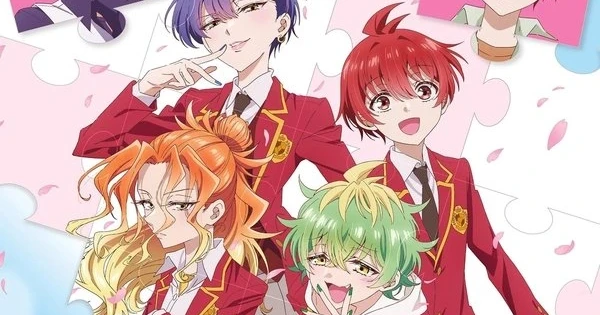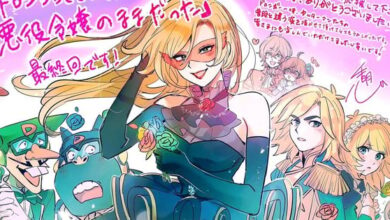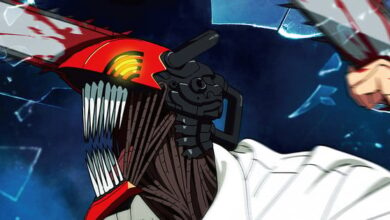Dealing with Mikadono Sisters Is a Breeze Anime Series Review – Review

Are you looking for an anime about sisterhood to fill the hole in your heart? Typical quintuplets left? Then I might make an anime for you! I’m kidding…mostly, but the idea of a harem show being specifically centered around a group of sisters who all have their own unique quirks and idiosyncrasies makes it easy for me to make initial comparisons. However, Dealing with the Mikado sisters It’s not like that. While this is a harem drama about a young boy who is forced to interact directly with three of the best women in his school, I believe the show does try to say something more. This is not just a love story. It’s also a question about family, insecurities, imposter syndrome, and the overall pressure to live up to the expectations others impose on you.
Much of the story comes from our three sisters, each of whom is a prodigy in a specific field, but those fields come with their own baggage. In some ways, the show does cross the line a little bit in its sympathy for those who are unilaterally privileged. However, I do appreciate that the show goes to great lengths early on to show that these talents do not immediately equate to happiness, and that a state of perfection is something that needs to be explicitly maintained. Just because you’re really good at blocking doesn’t mean you don’t need to keep practicing or learning techniques every day, which will impact your social life. Just because you’re really good at martial arts doesn’t mean you don’t have to maintain a very strict diet while maintaining a very specific appearance. Just because you’re really good at playing a particular character doesn’t mean you’ll be able to perform well in all situations, especially when your life experience is very limited due to the amount of effort you put in as an actor. There are many different levels and approaches to this idea, and whether you are talented or not, hard work is the cornerstone of success. Not only does it give the show a more automatic feel than your typical harem drama, but it also gives all the girls more dimension than a show like this could.
I like these girls. The first half of the show establishes a forced, albeit somewhat tragic, premise, and then the second half of the show gives each of the girls a little bit of an arc. Because of their position, each girl ends up facing a wall they’ve never faced before, and only by interacting directly with Yuu are they able to overcome it while also learning more about themselves. However, there is some tug-of-war over the emotional stability of the family they are part of. Yuu can teach them that there’s more to life than their talents, which ironically ultimately makes them more well-rounded as individuals, but it also runs the risk of distracting them, something their father really, really doesn’t want. I did like that their father initially acted like an understanding person and let Yuu stay with them, but after that, his presence was felt throughout the show and became the source of the emotional trauma that all the girls were dealing with, despite being barely physically present. This is in stark contrast to Yuu’s behavior, which is ironic since he also arguably grew up in a neglected family.
Similar to the girls, Yuu is definitely more layered than your typical harem protagonist. Don’t let his cheerful demeanor fool you, it’s hard not to feel bad for the boy. Despite his pedigree, he doesn’t display much talent beyond conventional appeal, but I like that the show proves that’s not entirely a positive. He is usually attractive because his mother is a beautiful actress. Because he looks so much like his mother, that means it’s easy to be lulled into a false sense of security and think that he’s actually talented and capable. He is constantly reminded of expectations that he will never be able to fulfill, but he tries his best not to let them down. I wish the show had done more than its original premise. It’s brought up constantly throughout the show, but bringing something up and actively participating in it are two different things.
All Yuu wants is a family, and he has the chance to build one with these three sisters. I like that this also explains why he’s kind of ignoring the other sisters’ growing affection. He’s not looking for romance, he’s looking for a place to call home because he has to spend most of his life reminding himself of how useless he is. It’s really sad when you sit back and think about what each character is really going through on an emotional level. I respect the show for not shying away from it, even though deep down I think they really could have gone further. Sometimes Yuu’s temperament is so cheerful that it distracts you, and some of the character moments at the end are just there to maintain this family status while romantic progress can be made.
It’s really convenient because the girls are inexperienced and therefore bad at expressing themselves, while our protagonist is so distracted by just being part of the family that the romance doesn’t really get anywhere. But then again, the show’s ability to touch on a lot of familiar harem tropes in a truly meaningful way, and with explanations behind them, might be the ideal way to do that. You can use familiar tropes, but they’re easier to forgive as long as they come from a believable place. All of these complaints are not things I actively think about while watching the show because I am truly invested in the emotional drama of the characters.
I love how bright and colorful the visual presentation is. This is arguably one of the most vibrant harem shows I’ve seen in a while, with everyone having unique colors and very strong facial features associated with them. Everyone looks really intense when they get into a certain mood, but I also love the little chibi art style that the anime relies on when characters are bickering or having fun moments. It’s a tough balancing act, but I do think it’s done pretty well. It also helps that the music is great. The main lighting theme of the series is this very tender guitar piece that always tugs at my heartstrings when it’s played during the more emotionally difficult moments of the show. A lot of effort went into this presentation so things don’t feel superficial.
this dubbing Not bad either. I appreciate that the voices of the three sisters sound very different, yet there are similar tonal cues throughout, suggesting that the three of them do indeed sound like sisters who live in the same household. Their outbursts are believable and they manage to achieve the perfect balance of sounding mature yet still like young teenage girls, which I find difficult to achieve. Luo Huimei Sounds childish like Kazuki since they mostly play men in their acting work, Madeleine Morris Definitely can yell like Niko as a martial arts fighter and Lindsay Seidel There are more high pitches and it always feels naturally a little tighter, but when you consider that fact sugar cane As a shogi player, it makes sense to often sit quietly practicing or participating in tournaments. I like this attention to detail, but it makes me curious about Yuu’s vocal performance.
Don’t get me wrong, I do think so Kieran Regan It’s brilliantly done, and it’s hard to find someone who can sound like a little boy without making himself nervous. I remember hearing that he played a little boy in the show shield heroso seeing him in the starring role gave me a great opportunity to really appreciate his vocal range. I just have mixed feelings because in the Japanese version, Yuu is clearly played by a woman, and it almost feels like that should be a plot point. The idea of Yuu appearing more traditionally feminine compared to the other sisters was also intentional, to reflect and draw attention to the fact that he does look like his mother. Again, I still think Regan did a great job and I’d like to hear him play more of these roles, but thematically, this could be an example of the Japanese version being a little stronger.
Overall, I’m very surprised. I love this show as much as I do. I originally watched it thinking it would be my trash show of the season, but it quickly became one of my favorites. It’s bright, colorful, sounds amazing, and makes a genuine effort to resonate with multiple audiences, not just those who enjoy harem shows. The actors had great personalities and I believed in all the personal struggles they were going through. How it all comes together to form a potential season going forward is also paramount. If you like a little more slice of life, and don’t mind the occasional harem trope, then I definitely think you should pick this one up, as it might surprise you like it did me.




